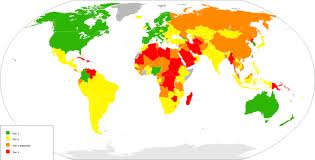U.S. Nuclear Regulatory Commission Funding Opportunity Announcement, Nuclear Education Curricula Development Grant, Fiscal Year 2010
The U. S. Nuclear Regulatory Commission (NRC) is an independent agency, established by the Energy Reorganization Act of 1974, tasked with licensing and regulating the Nations civilian use of byproduct, source, and special nuclear material to ensure adequate protection of public health and safety, to
promote the common defense and security, and to protect the environment.
The Energy Policy Act of 2005 authorized the NRC Nuclear Education Grant Program to support courses, studies, training, curricula, and disciplines pertaining to nuclear safety, nuclear security, nuclear environmental protection, and other fields that the Commission determines to be critical to the NRCs regulatory mission.
The NRC Nuclear Education Grant Programs primary purpose is supporting and developing the educational infrastructure necessary to allow the Nation to safely move its nuclear energy initiatives forward.
The NRC currently supports curriculum development in the following technical areas:
Nuclear Engineering Criticality safety courses for nuclear professionals Thermal-hydraulics model development Reactor physics Nuclear power plant safety Nuclear power plant design and operations (including operating and emergency operating procedures) Fuel performance Radiochemistry and Radiobiology Health Physics Health physics modeling Dosimetry and measurements Environmental transport, dissolution, and migration Decontamination and decommissioning Reprocessing, recycle chemistry, and technology courses Materials and Mechanical Engineering Welding principles, and nondestructive examination (NDE) technology Management of aging plants (components and systems) Material corrosion Reliability and Risk Analysis Electrical Engineering Power generation and distribution or electrical components Digital instrumentation and control systems Safeguards and Security Material control and accountability courses Vulnerability analysis Human Factors and Human Reliability Human factors modeling Applied-experimental psychology, specializing in human performance and human factors Fire Protection Engineering Fire Modeling for Fuel Cycle Facilities Fire Modeling for Nuclear Power Plants
The Energy Policy Act of 2005 authorized the NRC Nuclear Education Grant Program to support courses, studies, training, curricula, and disciplines pertaining to nuclear safety, nuclear security, nuclear environmental protection, and other fields that the Commission determines to be critical to the NRCs regulatory mission.
The NRC Nuclear Education Grant Programs primary purpose is supporting and developing the educational infrastructure necessary to allow the Nation to safely move its nuclear energy initiatives forward.
The NRC currently supports curriculum development in the following technical areas:
Nuclear Engineering Criticality safety courses for nuclear professionals Thermal-hydraulics model development Reactor physics Nuclear power plant safety Nuclear power plant design and operations (including operating and emergency operating procedures) Fuel performance Radiochemistry and Radiobiology Health Physics Health physics modeling Dosimetry and measurements Environmental transport, dissolution, and migration Decontamination and decommissioning Reprocessing, recycle chemistry, and technology courses Materials and Mechanical Engineering Welding principles, and nondestructive examination (NDE) technology Management of aging plants (components and systems) Material corrosion Reliability and Risk Analysis Electrical Engineering Power generation and distribution or electrical components Digital instrumentation and control systems Safeguards and Security Material control and accountability courses Vulnerability analysis Human Factors and Human Reliability Human factors modeling Applied-experimental psychology, specializing in human performance and human factors Fire Protection Engineering Fire Modeling for Fuel Cycle Facilities Fire Modeling for Nuclear Power Plants
Related Programs
U. S. Nuclear Regulatory Commission Nuclear Education
Grant Program
Obtain Full Opportunity Text:
Not Available
Additional Information of Eligibility:
Not Available
Full Opportunity Web Address:
Contact:
Kathleen ShinoSenior Grants SpecialistPhone 301-492-3636
Agency Email Description:
Kathleen Shino
Agency Email:
Kathleen.Shino@nrc.gov
Date Posted:
2009-10-16
Application Due Date:
2010-02-01
Archive Date:
2010-03-03
Social Entrepreneurship
Spotlight
When it Comes to Social Enterprises, Failure is the Best Platform for Innovation

In the world of social enterprises, failure is a cringe-worthy moment nobody wants to talk about. But, social entrepreneurs can benefit from their failures.

